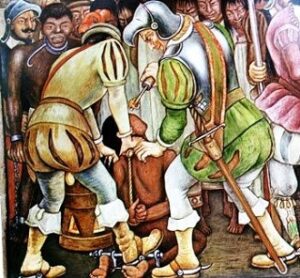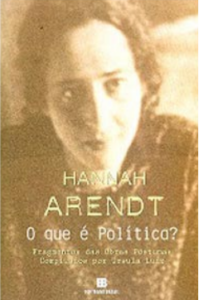
Arquivo para a ‘Método e Verdade Científica’ Categoria
An incomplete epistemology and eschatology
What phenomenology and ontological philosophy seeks is at the center of the scientific crisis and of the thought that the West is experiencing, and whose epicenter is European, in Peter Sloterdijk’s enlightened saying that Europe is no longer the center as in the colonial period (empire of the Center) and looks for other forms of colonialism to take idealism forward, what in literature has been called epistemicide. In denying the cultures originating from other peoples, he thinks he is finding his own diffusion between barbarism and classical antiquity, he tries a new renaissance exploring the Greek culture in a diffuse way.
center of the scientific crisis and of the thought that the West is experiencing, and whose epicenter is European, in Peter Sloterdijk’s enlightened saying that Europe is no longer the center as in the colonial period (empire of the Center) and looks for other forms of colonialism to take idealism forward, what in literature has been called epistemicide. In denying the cultures originating from other peoples, he thinks he is finding his own diffusion between barbarism and classical antiquity, he tries a new renaissance exploring the Greek culture in a diffuse way.
At the religious level the disaster is greater, Slavov Zizek recently wrote about the religious concept in Hegel, and the latter of the thinkers who tried to revive classical Marxism, reworked the Hegelian religion, but which was already present in Feuerbach and Marx himself criticized, in the bottom is an atheistic theology, a dead eschatology.
Dead because this is in fact the great mistake of idealistic eschatology, there is no transcendence for it without the separation of subject and object, it needs to deny the substantiality to affirm its “subjectivity” where the subject must always be dead, it denies being-for-dead Heidegger’s motto, but affirms death in life (it isnt epoché).
Every form of original culture, it is obvious that it includes those non-Christian cultures, has an origin (the name says it), the eschatological life and end, which is not where it is going, and at this point this incomplete theology diverges on the that in fact is death, in times of a pandemic one could say the disease that can kill.
For this reason, even if the appeal to phenomenology will be incomplete, it will lead those who incorporate it to exhaustion, to contempt for life, which even in the religious sense is something deeply sacred, its “biós”, its substantiality, to be clear to idealists, its objectivity, fall into theoretical abstractionism.
The only substantiality of this incomplete eschatology is to deny religion in order to make it idealistic and to ask for what is inhuman, what in biblical terms he calls “putting heavy burdens on the shoulders of others” and which they themselves refuse to carry in times of pandemic neither enter nor let others in.
The final exam will be substantial: “I was hungry and you gave me food, I was thirsty and you gave me drink…” and you will not be asked whether you have developed a good epistemology or theology, the one that made colonialism the terror of original cultures.
Civilization crisis and death
Returning to Pablo Picasso’s thought that the worst loss of life is not dying, but dying while we live is the one that best explains the civilizing state, even those who owe fraternity, dialogue, the planet as a common home seems hopeless and therefore tired , not that tiredness of the Society of Tiredness that is also a crisis, but that of those who have failed to find what unites, the positive and the true.
not dying, but dying while we live is the one that best explains the civilizing state, even those who owe fraternity, dialogue, the planet as a common home seems hopeless and therefore tired , not that tiredness of the Society of Tiredness that is also a crisis, but that of those who have failed to find what unites, the positive and the true.
To speak of the post-truth, the sophistry is pre-Socratic, and the public lie has also been conveyed by newspapers and television channels, according to the political side they take, in the end everyone agrees that if you are not on the politically correct side, it is not true, so we remain in relativism and dualism, even those who preach against it, Edgar Morin is right is a crisis of thought, and Peter Sloterdijk is also “not a favorable time for thinking”, it is easier to take a side, although there are mistakes and successes on several sides, because there are only two.
I saw on Instagram that two very popular videos are of a young artist who makes puppets with skeletons, birds and funeral figures and another of a girl whose hair was decorated like a cemetery (figure above), it is a sad reality the post-Goths seem to dominate youthful fantasy.
In a BBC report on October 31, poor banker Muhammad Yunus stated: “We need to redesign the system by guaranteeing a new economy of three zeros: zero poverty, zero unemployment and zero net carbon emissions. And we know how to do it. The problem is that we are very lazy and we are very comfortable in the system we have, we don’t want to leave our comfort zone ”, is a new thinking may not work, but without a doubt people, the poor and the planet need answers, the old ones create more polarization and misunderstandings, in addition to post-truths, in this case with a new meaning, from an ideological point of view they were once true, today they are post-true.
There are situations and I think that the planet itself can react, an aortic reaction, the inorganic one over the organic one, after all we came from the dust, from some chemical reaction and certainly if we don’t change the route we will go back to the dust, not that life’s fatality physical personal death, but dying in life.
The question that remains is whether this reaction from the inorganic planet could change something in the human organic, your mind, your being, for something better.
Affliction and anguish
Those who have read The Being and Time attentively know that one of Heidegger’s important responses is what should be read in Kierkgaard were quick to witness the celebrated response of a thinker considered to be one of the most eminent philosophers of contemporary times.
It is, therefore, Heidegger himself who Kierkegaard separating him into so-called “edifying” teachings that would be more important than “theoretical” ones, except in one case that is anguish, in his treatise The concept of anguish, and that the “the forest philosopher” is keen to say that “from an ontological point of view” it remains “entirely tributary to Hegel and ancient philosophy seen through him”. (HEIDEGGER, 2012, p. 651, n. 6).
What Heidegger saw in this 1844 book, whose authorship is attributed to Vigilius Haufniensis, a Kierkegaardian pseudonym that translates as “Copenhagen Watcher”, since Kierkegaard was Danish and his first intention is to return Socratic wisdom, which for him contemplative knowledge (theory) with practical knowledge (phrónesis), the way of ancient Greek.
Although he called Socrates a “practical philosopher, he just wanted to focus the“ anguish ”dressing on the experience of what was reflected by the soul and this meant an approximation of psychology, it was“ the doctrine of the subjective spirit ”(KIERKEGAARD, 2010, p. 25), was one of the branches of Philosophy, and of a really dialectical philosophy in the Greek-Socratic sense since modern philosophy has fixed itself on the Kantian dualism thesis versus antithesis with an improbable synthesis.
The philosopher uses the expression “hereditary sin”, used by the author throughout the work, but as the one that corresponds to what theologians, called by him “dogmatic”, call the original sin, nomenclature apart, is the aspect that brings his theme closer to the anguish of that “soul” affliction, which can have a philosophical and psychological outline, but which is basically that affliction of those who feel outside a center, from a clear perspective of overcoming anguish.
What leads existence to a singular way, to a way of acting in such a way? This is where the notions of freedom and anguish emerge as “concepts” converge to this “anguish”, but without having a locus, neither in Aesthetics, in Metaphysics or even in Psychology, so the author does not say so, but there is something afflicted and tragic in this journey in this “anguish”.
Paul Ricoeur, reflecting on these expressions of Kierkegaard, establishes that evil is “what is the most opposite to the system”, precisely because it is absurd and scandalous, irrational and incomprehensible, situated on the margins of morality and reason, recalls Ricoeur (1996, p. 16), referring to the Kierkegaardian reflections, evil is “what is the most opposite to the system”, precisely because it is absurd and scandalous, irrational and incomprehensible, situated on the margins of morality and reason.
Ricoeur thus differentiates structural evil (we have already made a post), linked to anguish and sin and free will linked to personal decisions in the face of anguish.
The point that I consider essential in Kierkegaard’s thought on this existential aspect is that “only what has crossed the anguish of possibility, only this one is fully trained not to be distressed, not because it evades the horrors of life, but because they always become weak compared to those of possibility ”(KIERKEGAARD, 2010, p. 165-166), it is here that affliction can find its opposite and we can understand that there is a source of comfort in it.
Thus anguish and affliction are not exactly curses or sinful states or diseases of the “soul” or thoughts, they are phases of rupture or transition to other more mature phases when this stage involves reflection and overcoming.
HEIDEGGER, Martin (1957) Ser e tempo. Campinas: Editora da Unicamp, 2012. (Multilíngues de Filosofia Unicamp). JOLIVET, Régis. As doutrinas existencialistas: de Kierkegaard a Sartre. Portugal, Porto: Tavares Martins.
KIERKEGAARD, Sören (2010). O conceito de angústia: uma simples reflexão psicológico-demonstrativa direcionada ao problema dogmático do pecado hereditário de Vigilius Haufniensis. Tradução e notas Álvaro Luiz Montenegro Valls. 2. ed. Brazil, Petrópolis, RJ: Vozes.
Vaccines are in the testing phase
All vaccines are in the testing phase, only the Russian vaccine with its mega emperor Putin has approved vaccines, but no one trusts it.
its mega emperor Putin has approved vaccines, but no one trusts it.
The American group of Modern biotechnology, one of those conducting tests in phase 3 in the United States promising results for December, was asked in September to give more transparency in its reports, almost always delivered to the government in a “confidential” character, reveals the pressures on the FDA (American Medicines Agency) because the election is close and could favor the government, but the company itself does not believe in short deadlines.
Another laboratory at Pfizer, one of the most promising vaccines, sparked controversy this week due to the infection and death of one of the people recruited for testing, a Brazilian volunteer who died, but according to the Bloomberg website the boy was in the group of test placebos and did not receive the active dose of the vaccine.
Clarifying the tests are called double blind, that is, neither doctors nor patients know which version was applied, in some a placebo is applied and in others the vaccine itself, this being one of the most reliable forms of testing, only in cases such as this from the death of a volunteer the dose is revealed.
The controversy of the Chinese vaccine, still without approval and with a deadline for October 2021, is one of the consequences of the politicization of the vaccine that we already warned in last week’s post, social polarization makes any issue, even those that should be everyone’s concern. regardless of ideology.
The problem of mandatory vaccination must be dealt with democratically, and the controversy does not help the public consensus, which in this case is already unlikely, the politicization of the issue is regrettable, judicialization is even more regrettable, I remember the case of drug addicts whose involuntary hospitalization has not been approved.
The testing phase, according to experts and the WHO itself, should continue for 2021, any premature anticipation of the vaccine will be as serious as the pandemic itself, and the result can be disastrous and subject to lawsuits.
We hope that the vaccine will come, that there will be a worldwide consensus on its validity, that the politicization of the theme will decrease and that we can emerge less polarized from the pandemic, is an altruistic theme, but we need to hope for a better humanity, if not so much suffering in a disastrous year that it was worthless.
What makes love loved
Hannah Arendt sought in Augustine of Hippo for her answers to Love, brought great contributions in the philosophical field to the theme, far beyond the classic division of the Greeks: agape, eros and filia; but as the contemporary philosopher Julia Kristeva observed, she went no further than the philosopher Augustine, for there is also the theologian.
brought great contributions in the philosophical field to the theme, far beyond the classic division of the Greeks: agape, eros and filia; but as the contemporary philosopher Julia Kristeva observed, she went no further than the philosopher Augustine, for there is also the theologian.
In addition to the intelligent division of her doctoral thesis: “Love in Saint Augustine”, Arendt herself emphasized the philosophical character of the work of the Bishop of Hipona, by emphasizing: “he never completely lost the impulse of philosophical questioning” (Arendt, 1996), his bases of Cicero, Plato and Plotinus are noticeable in his work.
Arendt’s choice to divide his dissertation into three parts is due to a willingness to do justice to Augustinian thoughts and theories that run in parallel. So each part “will serve to show three conceptual contexts in which the problem of love plays a decisive role.”
She also realizes the importance of Amor Caritas, but as she sees it is not theological, but only within human possibilities, Julia Kristeva when talking about Love goes further by stating: “love is the time and space in which ´I´ give myself the right to be extraordinary“, while Arendt is clear that there is a difference between Caritas and Cupiditas, who loves the world, the things of the world.
But the question of Augustine that must also be answered by Christians is what “do I love when I love my God?” (Confessions X, 7, 11 apud Arendt p. 25), the fifth essence of my interior, it is true as Augustine thought that I find in me what connects me to eternity, but there is beyond the fifth essence or Other outside, not just God , but that Other that passes by me, the one whose identity is hidden in the human envelope of the Other that has God in him too.
What I love when I love God, is thus extended to Love humanity, concrete in each Other that I relate to, and is beyond the fifth essence of my “I”.
So Caritas is the extraordinary in me, both Arendt, Kristeva and Augustine himself are right in part, but the God I love is now also present in the Other, which is beyond my mirror and beyond my inner essence.
Perhaps the biggest trap made for Jesus by the Pharisees is in the question, after Jesus had silenced the Sadducees, it was in the question (Mt 22,36) “Master, what is the greatest commandment of the Law?”, And Jesus will answer (Mt 22, 37-39): “Jesus replied:“ ‘You shall love the Lord your God with all your heart, with all your soul, with all your understanding!’ That is the greatest and the first commandment. The second is similar to this: ‘You will love your neighbor as yourself’ ”, and concludes that this is the synthesis of the entire Law and of the prophets.
Hannah Arendt quotes this passage, but the sequence is clear you will love with all courage and soul, theological aspects and then with understanding, the philosophical.
However, the updated question is this of Augustine: “What do I love when I say that I love God?” and if the answer is also “The neighbor as yourself”, that is, with its inner essence directed to the Other, it means that I cannot say that I really love Love, which comes from God, if it is not the Love caritas.
Arendt, Hannah. (1996) Love and Saint Augustine. Chicago: University of Chicago Press.
Figure: Textures and acrylic on canvas. January, 2018. Eva-sas Gallery.
Still love in Saint Augustine
What made Hannah Arendt conclude that a Civilization of Love was not possible, in addition to her personal experience as a Jew who would not return to her “home” in Israel, she still had to make plans for this, is the misunderstanding of Caritas Agápico , the true love.
not possible, in addition to her personal experience as a Jew who would not return to her “home” in Israel, she still had to make plans for this, is the misunderstanding of Caritas Agápico , the true love.
Philosopher Julia Kristeva released a reserved report by advisor Karl Jaspers about her advisor Hannah Arendt, it seemed to her that her student that her student at the time “[…] was able to underline the essentials, but that she simply did not meet everything Augustine said about love. […] Some errors appear in the quotes. […] The method exerts some violence on the text. […] The author wants, through a philosophical work of ideas, to justify her freedom in relation to Christian possibilities, which, however, attract her. […] Unfortunately, it does not deserve the highest mention [cum laude]. Indeed, Arendt seems to favor, in Augustine, the philosopher, to the detriment of the theologian. ” (KRISTEVA, 2002, p. 41).
Philosopher Kristeva points out the essential point by going deeper into Augustine’s thought, and asks what kind of love the philosopher referred to and whether there was more than one type of love, in addition to the already known filia, agape and Eros: “Numerous terms decline the concept of love in Augustine: love, desire (with its two variants, appetitus and libido), charity, lust, forming a true ‘constellation of love’ (…) ”. (KRISTEVA, 2002, p. 42).
What was revolutionary about Augustine’s strong Christian message, in addition to his intellectual and theological capacity, was the notion of liberation from ancient laws, which some incorrectly call legalism (these are not “human” laws), centering on love the basis of religion was possible to overcome Augustine’s previous affiliation with Manichaean dualism, to which a good part of theology and philosophy are still attached, the latter but more linked to current rational-idealism.
It will be impossible to think of a civilization that overcomes hatred, violence and the dualistic division of society without true charity, one that extends to all, one that admits diversity, and one that seeks justice, as Augustine thought: “where there is no charity there can be no justice ”, and thus the greatest desire for justice must be based on charity, even if it seems too altruistic, or mushy, just look at what hatred has built but wars and violence.
The set of volumes of Julia Kristeva’s “Female Genius” (1941-) is to analyze and pay tribute to three thinkers of the 20th century, perhaps the best known Hannah Arendt (1906-1975), Melanie Klein (1882-1960) and Colette (1873-1954).
Julia Kristeva is considered a structuralist (or post), along with Gérard Genette, Lévi Strauss, Jacques: Marie Lacan, Michel Foucault and Althusser, she also has an important work on semiotics. as a mosaic of quotations ”(Kristeva, 2005, p. 68) and also:“ The text does not name or determine an exterior ”(KRISTEVA, 2005, p. 12), thus stating that literature does not account for the real.
KRISTEVA, Julia (2002). O genio feminino. The female genius: life, madness and words. Rio de Janeiro: Rocco.
KRISTEVA, Julia (2005) Introdução à semanálise. Introduction to semanysis. Translation by Lúcia Helena França Ferraz. 2nd ed. São Paulo: Perspectiva.
What is politics?
Politics has become an absolute imperative, even in pandemic times when health and sanitary issues should occupy the top of the concerns, they do not subside, and the polarization that has been serious for a few years becomes even more dramatic, polarizing even topics that should be unanimous, such as health.
times when health and sanitary issues should occupy the top of the concerns, they do not subside, and the polarization that has been serious for a few years becomes even more dramatic, polarizing even topics that should be unanimous, such as health.
Hannan Arendt has a thought-provoking essay, published as posthumous works, and organized and compiled by Ursula Lutz, and dating from 1950, had a publication in Brazil in 1998.
Concerned with the dramas of its time, two wars, it also seems to point to our current scenario: “the positive sense of the” political thing “starts from two basic experiences of our century, which overshadowed this sense and transformed it into its opposite: the emergence of totalitarian systems in the form of Nazism and Communism, and the fact that today politics has technical means, in the form of the atomic bomb, to exterminate Humanity and, with it, all kinds of politics ”, described the preface Kurt Sontheimer, from the German version of 1992.
Arendt in Fragment 1, elaborates seven assumptions and discusses them: 1. The policy is based on the plurality of men, 2. The policy deals with the coexistence between different, 3. When one sees more than participation in the family, that is , active participation in plurality, you start to play God, that is, to act as if you could leave, in a natural way, the principle of diversity. Rather than generating a man, we try to create man in the image of himself (I stretched this on purpose), 4. Man, as philosophy and theology know him, exists – or is realized – in politics only with regard to the equal rights that the most different guarantee themselves.
I would say that these are almost proto-principles, but it is in the following 3 that he bases his thinking on philosophy.
The fifth will have subtopics. Philosophy has two good reasons for not limiting itself to just finding the place where politics arises. The first is: a) Zoon politikon: * as if in man there was something political that belonged to his essence, in this the author disputes Aristotle saying that politics is “among men”, b) The monotheistic conception of God, in whose image man must have been created.
The sixth: it is difficult to understand that we must actually be free in a field, that is, neither moved by ourselves nor dependent on the given material. Freedom exists only within the particular scope of the intra-political concept. We are saved from this freedom just in the “necessity” of history. An abominable absurdity.
The seventh: It may be that the task of politics is to build a world as transparent to the truth as God’s creation. In the sense of the Judeo-Christian myth, this would mean: man, created in the image of God, was given the genetic capacity to organize men in the image of divine creation. Probably absurd – but it would be the only possible demonstration and justification for the idea of the law of Nature.
It is only from there that the author begins her introduction on the question of what is politics, in times of polarization the theme is urgent.
Arendt, Hannah, (1998) “O que é política” (1950), obras póstumas 1992, compiladas por Ursula Ludz. Rio de Janeiro: Bertrand Brasil.
Plato’s banquet
At banquets, tables and food sharing celebrate many things, including dialogue on essential topics.
including dialogue on essential topics.
Occurring around 380 BC it is a dialogue, and there are some who prefer the translation of Greek as Symposium (in ancient Greek sympotein means “to drink together”), and the central theme is Love, between eros and agape, and the central character as in most of his dialogues are Socrates.
Also in the dialogue Aristophanes and Ágaton (or Agatão), in his house there had been a previous banquet in celebration of the literary prize he had won, in this banquet Socrates and other participants spoke about “love”, Apolodoro and Glaucon, Aristodemo and Agaton himself.
Glaucon considers Apolodoro as crazy because he despises the material, Ágaton means “good” in Greek, good things and love lead to the practice of good and beautiful, and if we knew the practice of love the good it does, men would make an army of lovers, reminiscent of the army of banos, whose front was Pelopidas and Epaminondas in 371 BC
Phaedrus’ speech is that the love worshiped by men reveals them to be more virtuous and happier during life and after death, but it is in cosmogony that the speeches will oppose, while Phaedrus sees the origin of Eros as a very ancient god, without mention of parents, he was born next to Geia (land) after Chaos.
Pausanias the second to speak, contrary to Phaedrus, there are several Eros, he was the son of Aphrodite, and two Aphrodites, a daughter of Uranus and another of Zeus, that of Zeus generates vulgar eros and that of Uranus a heavenly Eros.
Eriximaco approves the distinction of Pausânias on the duplicity of Love and, universalist, extends it to every cosmos: “great and admirable, and it extends to everything, both in the order of human and divine things”, being a doctor says that the love and concord provide harmony, combining opposites (the healthy and the morbid) that extend throughout the universe: “one must keep one love and the other…”.
Aristophanes will insist on the power that love has over historical nature, using the myth of the androgens, legitimizing homo-affection and the unbridled search for what we now call “soul mates”, which is a search for perfectionism and in a way narcissism . Socrates praises the fact that Agaton began to show nature and what are the works of Love, but then follows his classic Question method: “Is Love such that it is Love of something or nothing?”, Ágaton confirms that Love is Love of something. Which “something” is Love from and continues with the question: “Does Love, what it is love, does it want it or not?” and the banquet follows the fashion of the Greek classics.
The banquet, the table at which everyone sits is the important part of this dialogue, seems so classic and so present, but we would add a question and Francisco de Assis, remembered these days, he said with conviction: “Love is not loved”, so before to be an instrument as stated by Agaton is itself something to be used as an instrument, at a time of so much pain in humanity, or else the Socratic way of asking: “Is Love loved?”
Plato, (2003). The Symposium, trans. by Christopher Gill. London: Penguin.
The importance of weak links
In network theory, weak links are important, not in network media like facebook, instagram or other media, networks are forms of interpersonal relationships linked to certain interests and groups (hubs) that are important and could be more if they were understood dirty features and operating modes.
like facebook, instagram or other media, networks are forms of interpersonal relationships linked to certain interests and groups (hubs) that are important and could be more if they were understood dirty features and operating modes.
The weak link of a network, someone who is on the periphery of it and with little contact with the central group (the hubs) are in fact the great potential of these networks, in social life, in science and even in politics they were people with little connection with the power groups that made a difference.
Li from Alan Turing, creator of the modern digital computer model, who are “the times of people that nobody expects anything to do things that nobody can imagine”, he participated in a secret project at Bell Laboratories that unveiled the secret of the Enigma machine, of codification of messages of the Nazis during the 2nd. World War.
Einstein went to several schools, and it is not true that he was a poor student, he hated them all. his parents and teachers thought he had mental limitations, when in fact the school did not inspire him at all, he considered them weak.
Stevie Jobs, too, took little interest in his studies and was an easygoing student in the classroom, in a primary classroom when a teacher asked if they understood the universe, heard his reply that he did not understand “it is because we were so broke”.
Many are the simple people who point to a period of great difficulties, only media thinkers, networks of interests with audiences who want to hear certain responses to the current situation that are successful, in general they say that the pandemic is nothing, that when it passes let’s be happy, so it’s not just politicians looking at a complex reality with simplistic and poorly elaborated responses.
At the end of last week we said that “the last ones will be the first”, now we say something more than that, they are the ones that can make a difference, especially in the context of social and health severity that we are entering, in the “social network theory” Mark Granovetter, who studied the subject, explains that because they are distant, it is these weak ties that are able to take the message to be “shared” with people and groups from other circles, expanding the network.
GRANOVETTER, M. (1973). The strength of weak ties. In: American Journal of Sociology, University.

